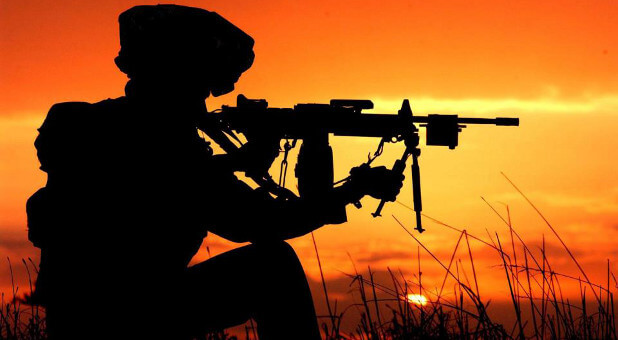Israel’s domestic spy agency, the Israel Security Agency (Shin Bet), says it thwarted 100 “serious” terror attacks in 2012, of which a third were planned kidnappings, the agency revealed in a report published Thursday. The Shin Bet said it arrested 2,300 terror suspects, which led to 2,170 indictments.
Half of the planned kidnapping attacks were planned roadside bombs followed by small-arms fire. Four planned suicide bombings were thwarted, as well as five infiltrations from the Sinai. Twenty kilograms of high-grade explosives and triggering mechanisms were caught—all smuggled through the border with Lebanon by Hezbollah. Command and control centers operated by Hamas in Ramallah and Hebron were uncovered. Hamas used the centers to rehabilitate its military infrastructure in the West Bank to carry out attacks, with an emphasis on kidnappings.
Some 10 million shekels to be used for terror financing were intercepted.
For the first time in four decades, no Israelis were killed in terrorist attacks in Judea and Samaria in 2012.
Despite the lack of deaths, there was an increase in the number of attacks in Judea and Samaria, from 320 in 2011 to 578 in 2012. The number of Molotov cocktail attacks in Judea and Samaria in 2012 rose 68 percent, compared to the previous year.
There were also no terror-related deaths in Jerusalem in 2012, but the number of attacks there also increased, from 191 in 2011 to 282 in 2012. The number of Molotov cocktail attacks in Jerusalem rose 31.5% in 2012, compared to the previous year.
Overall, 10 Israelis were killed in terrorist attacks in 2012, compared to 22 the previous year. Six of the deaths in 2012 were caused by rocket and mortar fire from the Gaza Strip.
Despite the decrease in terror-related deaths, the number of people wounded in terrorist attacks in Israel increased from 159 in 2011 to 309 in 2012. A vast majority (87 percent) of the latter injuries occurred during Operation Pillar of Defense in November. Some 232 people were wounded by rocket fire during Israel’s eight-day offensive against terrorist groups in Gaza. Another 29 were wounded in the bombing of a Tel Aviv bus on the last day of the operation.
There was a dramatic increase in rocket fire from Gaza in 2012, with 2,327 rockets launched into Israel, compared to 419 in 2011.
The number of terror attacks against Israel originating in the Sinai Peninsula went up in 2012, as did the number of attempts by Hezbollah and Iran to strike Israeli targets overseas.
There was a prominent trend in 2012 of overseas attacks against targets with low security protection, such as local employees of Israeli diplomatic missions, members of the Jewish community and Israeli tourists. In July, five Israelis were killed in a bomb attack on their bus at the Burgas Airport in Bulgaria.
In February, the wife of an Israeli Defense Ministry official was wounded when a bomb was attached to her vehicle in the Indian capital of New Delhi. On that same day, a bomb was discovered on the vehicle of a local employee of the Israeli Embassy in Tblisi, Georgia. Hezbollah and Iranian Revolutionary Guard operatives were also arrested in Thailand, Cyprus and Kenya in the midst of preparations for attacks against Israeli targets.
The number of attacks committed by far-right Jewish extremists against Palestinians fell by 40 percent in 2012 (18 in 2012, compared to 30 in 2011). There were three attacks by Jewish extremists against holy sites in 2012, a drop from seven in 2011. The number of cars set on fire by Jewish extremists also fell, from 21 in 2011 to 13 in 2012.
Jewish extremists were most active in the Binyamin area of Judea and Samaria, the Shin Bet report said.
Despite the overall decrease in attacks by far-right Jewish extremists against Palestinians in 2012, there was a significant increase in the involvement of minors in such attacks, including in the firebombing in August of a Palestinian taxi near Bat Ayin, in which six Palestinians were injured.
During 2012, 43 indictments were filed against far-right Jewish extremists. Some 18 were placed under house arrest and 29 administrative restraining orders against far-rightists were issued by the Israel Defense Forces Central Command.
Click here for the original article at Israelhayom.com.












